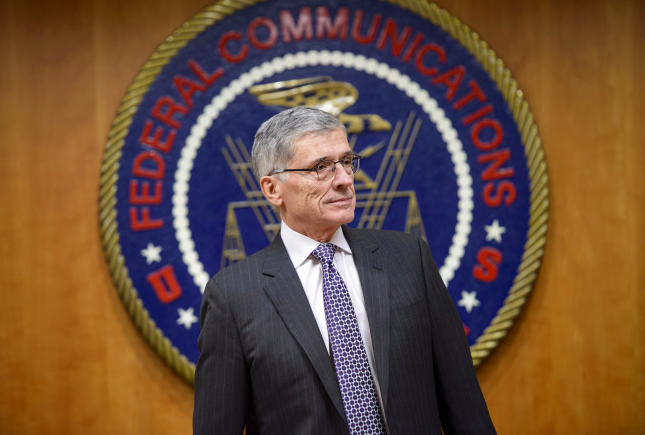Federal Communications Commission adopts net neutrality
The Federal Communications Commission (FCC) held a vote at its monthly meeting yesterday in Washington D.C., resulting in a 3-2 vote which has led to the espousement of net neutrality.
Net neutrality is the principle in which broadband Internet service providers such as Comcast and AT&T, are required to enable equal access to all websites, without impeding the access of certain applications or sources.
As a result of the implementation of net neutrality, all websites will be afforded the equal opportunity for internet speeds and user access by extension, without major firms being able to monopolize the Internet. The policy prohibits Internet service providers from charging companies such as Hulu and Netflix fees for priority service and to access “fast lanes.”In essence, all data will be treated equally and theoretically, the internet will be treated as a public utility.
In the past, service providers have exercised their power in manners that have been cause for contention. In 2011, Verizon blocked Google Wallet and in 2012 AT&T blocked FaceTime, sparking public outcry.
Sophomore Niki Iyer (10) believes that net neutrality is a necessary and fundamental principle.
“People should have the power to decide what content they want or do not want to see,” Niki said. [It’s] not any internet service provider’s duty to change what people want.”
Albert Pun (10) echoed the sentiment and voiced his concern on what would happen if the policy had not been implemented.
Sophomore Winnie Li believes that the adoption of net neutrality will ensure fairness in regards to the access of certain websites.
“Small websites can be accessed more easily so it’s more fair because now the internet will be viewed as a public utility and not a market,” Winnie said.
Others show concern at the idea of net neutrality. Many oppose the thought of government intervention in the regulation of Internet infrastructure, fearing that the government could levy taxes on users, among a host of other concerns.
Angela Huang (11) tries to remain neutral on the matter, but sees no reason for net neutrality to exist.
“I think [not having it is] fair because more people need to use the bigger company’s websites,” Angela said.
Title II of the 1934 Telecommunications Act, which is being used by the government to regulate telephone companies (includes banning “fast speed” lanes), will soon also apply to internet service providers. Purportedly, the FCC has promised that the terms of the act will be altered to cater to the specific differences between telephone companies and Internet service providers.
Several news outlets, including CNN Money, have already began speculating about the lawsuits which are sure the follow the FCC’s controversial vote. According to CNN Money, Comcast’s Executive Vice President, David Cohen, has already stated that litigation is “inevitable” and that we now face “years of regulatory uncertainty”.
The rules of net neutrality will not be officially instituted until the summer of 2015 at the very earliest. Months, even years of inexorable litigation are expected to ensue, cementing net neutrality as an issue that will be disputed for years to come.
Tara Parimi (12) is co-Editor-in-Chief of Harker Aquila, and this is her fourth year on staff. She has been involved with the upper school's journalism...


















![“[Building nerf blasters] became this outlet of creativity for me that hasn't been matched by anything else. The process [of] making a build complete to your desire is such a painstakingly difficult process, but I've had to learn from [the skills needed from] soldering to proper painting. There's so many different options for everything, if you think about it, it exists. The best part is [that] if it doesn't exist, you can build it yourself," Ishaan Parate said.](https://harkeraquila.com/wp-content/uploads/2022/08/DSC_8149-900x604.jpg)




![“When I came into high school, I was ready to be a follower. But DECA was a game changer for me. It helped me overcome my fear of public speaking, and it's played such a major role in who I've become today. To be able to successfully lead a chapter of 150 students, an officer team and be one of the upperclassmen I once really admired is something I'm [really] proud of,” Anvitha Tummala ('21) said.](https://harkeraquila.com/wp-content/uploads/2021/07/Screen-Shot-2021-07-25-at-9.50.05-AM-900x594.png)







![“I think getting up in the morning and having a sense of purpose [is exciting]. I think without a certain amount of drive, life is kind of obsolete and mundane, and I think having that every single day is what makes each day unique and kind of makes life exciting,” Neymika Jain (12) said.](https://harkeraquila.com/wp-content/uploads/2017/06/Screen-Shot-2017-06-03-at-4.54.16-PM.png)








![“My slogan is ‘slow feet, don’t eat, and I’m hungry.’ You need to run fast to get where you are–you aren't going to get those championships if you aren't fast,” Angel Cervantes (12) said. “I want to do well in school on my tests and in track and win championships for my team. I live by that, [and] I can do that anywhere: in the classroom or on the field.”](https://harkeraquila.com/wp-content/uploads/2018/06/DSC5146-900x601.jpg)
![“[Volleyball has] taught me how to fall correctly, and another thing it taught is that you don’t have to be the best at something to be good at it. If you just hit the ball in a smart way, then it still scores points and you’re good at it. You could be a background player and still make a much bigger impact on the team than you would think,” Anya Gert (’20) said.](https://harkeraquila.com/wp-content/uploads/2020/06/AnnaGert_JinTuan_HoHPhotoEdited-600x900.jpeg)

![“I'm not nearly there yet, but [my confidence has] definitely been getting better since I was pretty shy and timid coming into Harker my freshman year. I know that there's a lot of people that are really confident in what they do, and I really admire them. Everyone's so driven and that has really pushed me to kind of try to find my own place in high school and be more confident,” Alyssa Huang (’20) said.](https://harkeraquila.com/wp-content/uploads/2020/06/AlyssaHuang_EmilyChen_HoHPhoto-900x749.jpeg)



